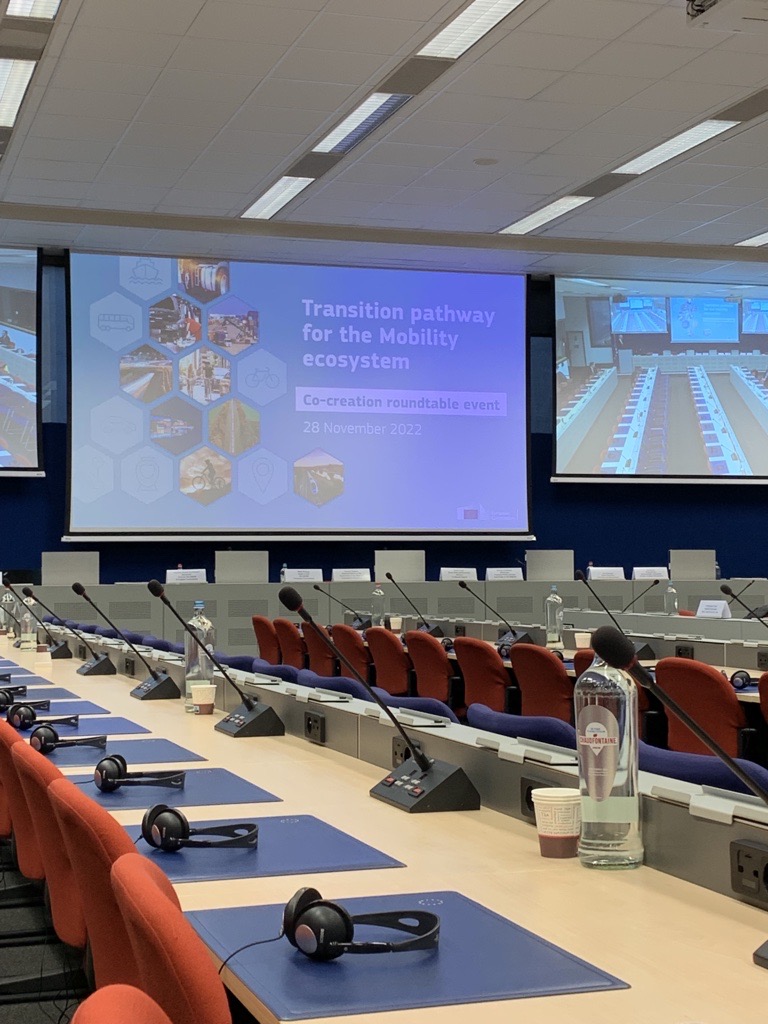
On the 28th of November 2022, the European Commission’s DG GROW organized a roundtable discussion to allow concerned stakeholders to contribute to the Transition Pathway report for the mobility ecosystem. The mobility economy ecosystem is one of the 14 industrial ecosystems identified by the European Commission in the 2021 Industrial Strategy update. Transition Pathways for the proximity & social economy and tourism ecosystems have already been published. The work on transition pathways is carried out by the Commission in collaboration with public and private stakeholders and this roundtable continues the consultation work started previously. It was divided into three sections: the regional and social dimension of the transformation of the mobility sector in Europe and then how to accelerate the twin transition in the sector.
During the second part of the roundtable, CECOP intervened to stress the important role of cooperatives working in the mobility sector. CECOP stated:
"Mobility is an important area for us since an important number of cooperatives affiliated to our network are active in the sector, providing sustainable solutions to mobility, such as public transport, rail transport, cycle-logistic, sailing ship transport, etc."
Moreover, CECOP illustrated with examples the fact that more and more cooperatives are being created to provide environmentally and socially sustainable solutions in response to new needs of the communities and the mobility sector. We can distinguish three main trends:
- Cooperatives that are created as a reaction to the lack of public service. For instance, cooperatives are providing public transport in remote areas like the Cooperativa Omnibus de Autobuses in southern Spain. An example of this in the rail sector is the recent rail transport cooperative Railcoop, that is relaunching a service among regions disconnected from each other in central and southern France.
- Cooperatives providing environmentally friendly and socially sustainable solutions to freight and logistic transport. They address needs varying from cycle-logistic transport in urban areas, in the case of cooperatives like Cyclologica in Italy, to maritime freight with sailing ship transport in the case of the French cooperative Windcoop.
- Platform cooperatives in transport or delivery services are rapidly growing in importance. They offer more attractive jobs by providing better working conditions for workers, while being at the forefront of the digitalization of the sector. The open-source platform cooperative La Pájara Ciclomensajeria from Spain is a prime example of such SMEs.
Finally, CECOP mentioned two more dimensions that make cooperatives unique actors of the transformation of the mobility sector in Europe. First, their multistakeholder governance model can link together the workers, users and communities (i.e. municipalities, regions, national public authorities etc.) that are concerned by the service provided - and thus contribute to a more sustainable and resilient mobility ecosystem. Second, the fact that cooperatives are inherently suited to face the upskilling and reskilling challenges that are affecting the mobility sector. Education and training are at the core of the cooperative model, finding its roots in the cooperative principle number 5.
We call the Transition Pathway report for the Mobility ecosystem to recognize the aforementioned advantages of cooperatives and envisage specific support for environmentally and socially sustainable enterprises.







 Entrepreneurship
Entrepreneurship Sustainable Growth
Sustainable Growth 

